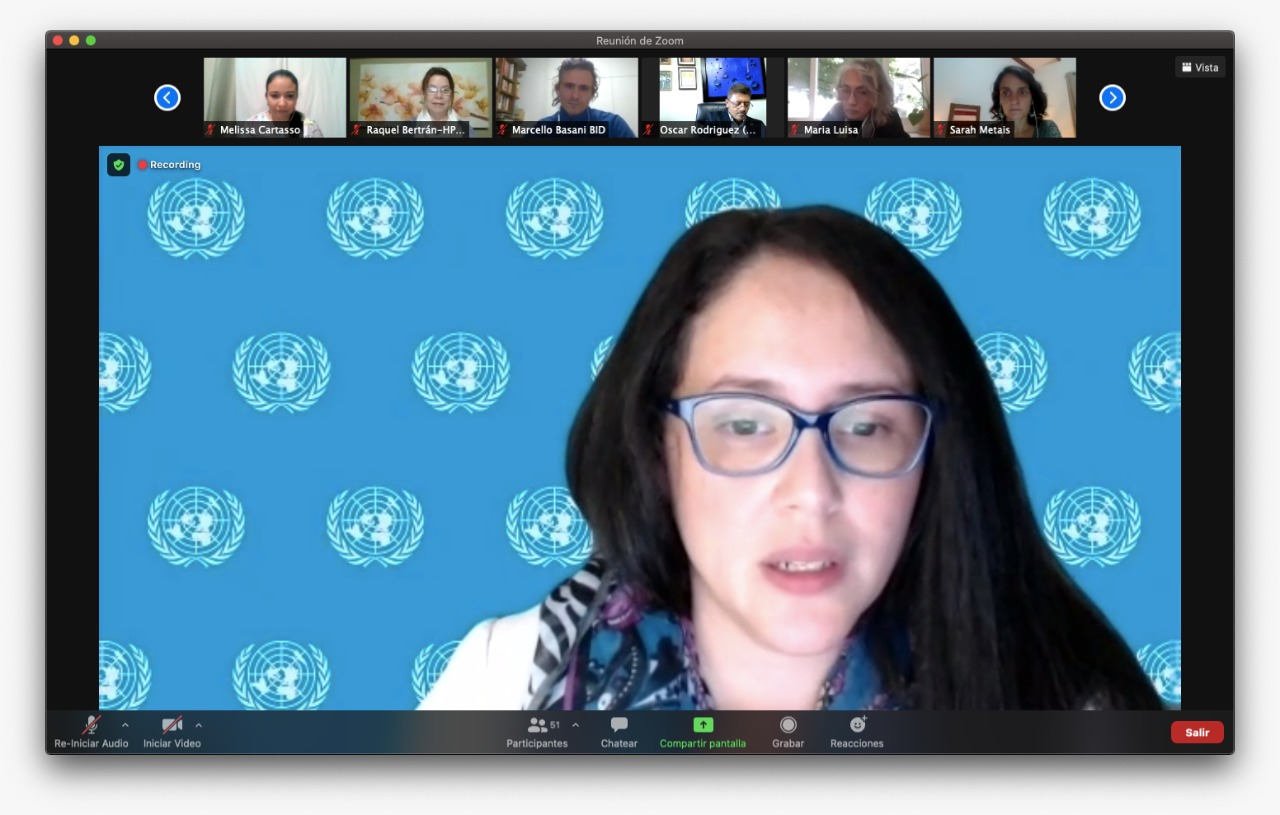ECLAC’s role in universal access to drinking water, sanitation and hygiene services and facilities
Work area(s)

The Economic Commission for Latin America and the Caribbean (ECLAC) held a bilateral meeting on February 18, 2021 with the Special Rapporteur on the Human Right to Drinking Water and Sanitation, Mr. Pedro Arrojo, to present their outstanding work and collaborate together in region's benefit.
The drinking water, sanitation and hygiene (WASH) sector is made up of several actors, ranging from users to service providers (which can be public, private, formal and informal community), organizations of aid, international donors and partner states to international and regional organizations.
In order to better understand the role and contributions of ECLAC in universal access to WASH, Mr. Pedro Arrojo met with Ms. Jeanette Sánchez, Director of the Natural Resources Division, Ms. Silvia Saravia Matus and the Mrs. Marina Gil from the Water and Energy Unit.
During this meeting, the mission and vision of ECLAC was announced, which is aimed at promoting the economic, social and environmentally sustainable development of Latin America and the Caribbean (LAC). Highlighting its main activities related to research and dissemination of information, technical cooperation, capacity building and establishment of intergovernmental platforms conducive to dialogue related to the economic and social development of the region.
Among the points addressed during the exchange, many synergies were found between both parties, which are summarized below:
1. Need for a water transition: that considers water as a natural asset, that guarantees the human right to water, reverses negative externalities and moves towards circular water management.
2. Ethical approach to leave no one behind: there is a large global gap in access to drinking water and quality sanitation (2,200 million people in the world), which in the region reflects 7 out of 10 people without access to safely managed sanitation and 2.5 people out of 10 without safely managed drinking water.
3. Social and environmental values closely linked in water management: equity in the access and maintenance of healthy ecosystems to achieve the provision of quality water and sanitation. Worrying increase in toxic pollution worldwide, and service cuts in the most vulnerable. In the region, the poorest quintile pays up to twice as much as the richest for the service and a third of the rivers in Latin America are contaminated by severe pathogens.
4. Gender and indigenous peoples: defense of the human right to water and sanitation, with an emphasis on the defense potential of these groups, and on reinforcing the security of these groups.
5. Growth of cities and the right to access to drinking water and sanitation: in LAC, concern about the quality of service in marginal neighborhoods and informal settlements.
Emphasis was placed on the work of the Natural Resources Division, specifically the Water and Energy Unit, and the lines of work that are being addressed to give attention to the WASH sector:
-
Equitable access to WASH, through the analysis of water rates and the regulatory frameworks of the sector.
-
Climate crisis, managing conflicts related to water and its challenges.
-
Integrated Management of Water Resources, analyzing policies and providing implementation recommendations.
-
Circular economy and Nature-based Solutions, as an opportunity for the WASH sector in the LAC region.
As a result of the meeting, a two-page brochure was produced that presents the outstanding work of the Commission, as well as the way forward for collaboration with the Special Rapporteur on Human Rights to Drinking Water and Sanitation during his mandate.
The brochure can be found here:
https://www.ohchr.org/Documents/Issues/Water/Partnering/partnering-eclac.pdf
Website of the Special Rapporteur, hosted by the Office for South America of the United Nations High Commissioner for Human Rights (OHCHR):
Related content

Water dialogues in Latin America and the Caribbean to accelerate SDG 6
More than 3000 people from different social, economic, and environmental sectors in the region registered for the virtual event co-organized by ECLAC, UNESCO IHP, CONAGUA and the Federal Government…

Virtual seminars on drinking water and sanitation in Latin America and the Caribbean, organized by ECLAC and ARESEP
Tariff Policies in the Drinking Water Sector, Challenges and Opportunities for the Sanitation Sector in Latin America and the Caribbean
Country(ies)
-
Chile
